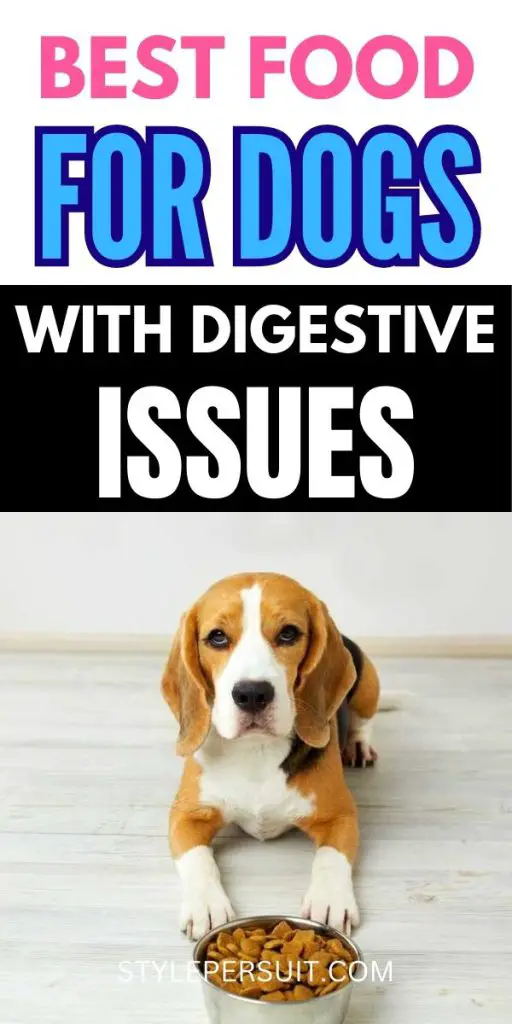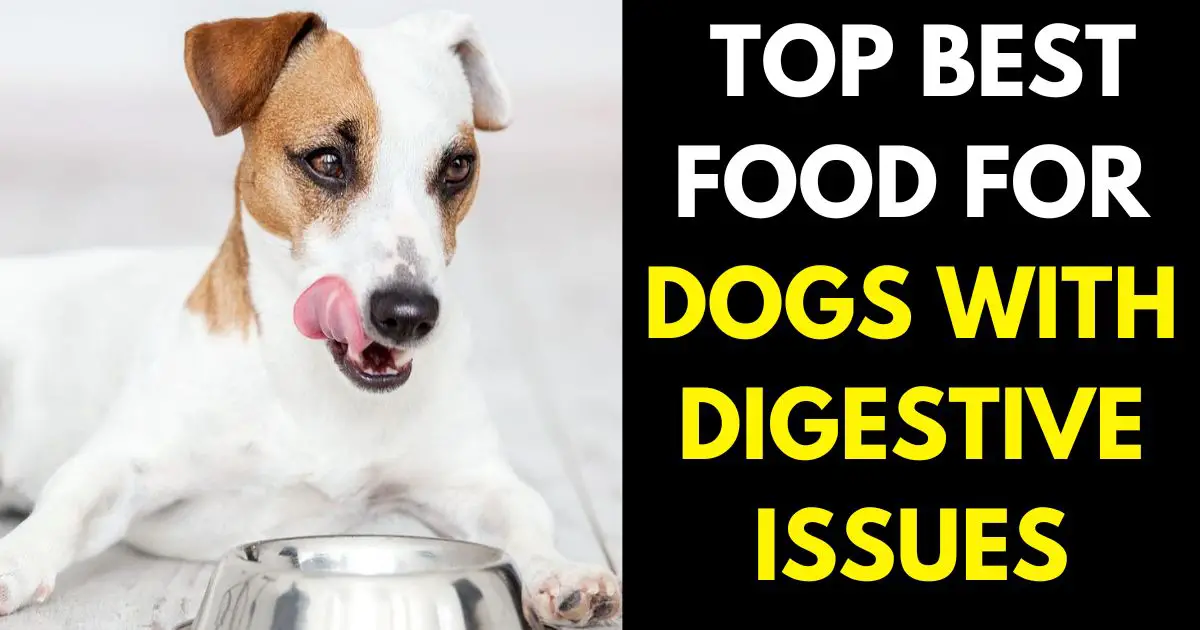Our furry companions love to explore their world with their noses, both inside and outside the house. However, sometimes this curiosity can lead to stomach issues, especially in dogs with sensitive stomachs. As responsible pet owners, it’s crucial to understand how to address this issue and provide the best care for our canine friends.
Understanding a Sensitive Stomach
A “sensitive stomach” refers to digestive problems that vary in intensity and manifestation. Common symptoms include diarrhea, intolerance to certain foods, difficulty with dietary changes, excessive gas, and vomiting.
Unlike other dogs, those with sensitive stomachs may not respond as well to conventional treatments, making it essential for owners to monitor their diet closely.
What leads to stomach sensitivities or digestive issues in dogs?
Digestive problems in dogs can arise from various factors, each indicating an imbalance in their digestive system. While the causes can be numerous, some common ones include:
1. Stress or Anxiety
Dogs, like humans, can experience queasiness due to stress or anxiety. This occurs when stress triggers their fight-or-flight response, which in turn slows down digestive function.
Stressful events for dogs may include changes in routine, adoption, visits to the vet, changes in the family structure (such as the arrival or departure of a family member or another pet), boarding, relocation, or being surrendered to a shelter.
2. Dietary issues or new foods
Sometimes, feeding your dog inappropriate foods like table scraps or suddenly changing their diet can upset their stomach. If your dog has a habit of scavenging for food on countertops or in the trash, it can lead to digestive problems. Similarly, abruptly changing your dog’s food can cause digestive distress.
3. Previous poor nutrition
Dogs that have been malnourished in the past, such as those adopted from shelters or those who have suffered from neglect or illness, may have an underdeveloped gut flora.
This means they lack the healthy bacteria necessary for proper digestion, which can make it difficult for them to absorb essential nutrients.
4. Viral and bacterial infections
Dogs can contract various stomach illnesses caused by viruses or bacteria. These illnesses are usually short-term and can spread easily, especially in places where dogs congregate, like dog parks or daycare facilities.
The viruses and bacteria are transmitted through direct contact with infected dogs or their waste. If your dog seems unwell or if another dog they’ve been in contact with is sick, it’s best to keep them at home to prevent the spread of illness.
5. Intestinal Parasites
Intestinal parasites like worms and single-celled protozoa can lead to digestive problems and hinder your dog’s ability to absorb nutrients. While puppies are more prone to these infections, adult dogs can also get affected.
If your dog shows signs of chronic diarrhea or you notice worm-like structures in their vomit or stool, it’s crucial to consult your vet promptly.
6. Food Allergy, Intolerance, or Sensitivity
Undiagnosed food allergies or intolerances can trigger ongoing digestive issues in dogs and may manifest at any stage of their life, regardless of their previous diet. If your vet suspects a food-related issue, they may suggest a systematic approach like an elimination diet.
This involves removing certain ingredients from your dog’s diet for a specified period, which can be a trial-and-error process. To ensure your dog maintains proper nutrition during this time, it’s important to conduct the elimination diet under veterinary supervision.
Recognizing Digestive Problems
Look out for signs such as constipation, vomiting, diarrhea, blood in the feces, bloating, fatigue, loss of appetite, excessive salivation, lack of energy, and excessive gas. If you notice any of these symptoms, it’s important to consult your vet promptly to ensure your dog receives proper care and treatment.
Foods to Feed Your Dog
Ensuring your dog’s digestive health is crucial for their overall well-being. Here are some dietary tips to support a sensitive stomach:
1. Opt for digestion-enhancing dog food ingredients
Choose limited ingredient, hypoallergenic, and therapeutic diets, as recommended by Pet Food Advisor. These can be beneficial for dogs with sensitive digestion. However, always scrutinize the ingredients list, avoiding fillers and exotic components that might pose risks, such as those linked to heart issues. Look for foods containing:
– Lean meats: Lean proteins like chicken and turkey offer easily digestible nutrition and help maintain gut health.
– Moisture-rich foods: Fresh meats, vegetables, and fruits are packed with moisture, aiding digestion, nutrient absorption, and hydration.
– Healthy fiber sources: Incorporate wholesome fiber sources like sweet potatoes, rice, and lentils into your dog’s diet. These promote satiety and support smooth intestinal function, ensuring regular bowel movements.
Occasional Digestive Upset Remedies
If your dog is experiencing occasional digestive problems, your vet might recommend a temporary bland diet. This diet helps calm your pet’s upset stomach and provides essential nutrients and hydration. Bland foods are plain and easy to digest, avoiding any ingredients that could worsen the problem.
To promote healthy digestion, feed your dog small portions of these bland ingredients:
– White rice: Cooked plain rice helps reduce diarrhea due to its low fiber content.
– Boiled chicken, turkey, or beef: These lean meats, with visible fat removed, offer easily digestible protein to support your dog’s body.
– Scrambled eggs: Plain scrambled eggs provide gentle protein and are low in fat.
– Pure pumpkin: Pumpkin puree, not the sweetened pie filling, is rich in fiber and can help firm up loose stool. Serve it in moderation to prevent constipation. If your dog doesn’t like pumpkin, you can try pureed banana instead.
Tips to Help Prevent Digestive Issues in Your Dog
1. Healthy Diet: Make sure your dog is on a balanced and nutritious diet to support their digestive health.
2. Regular Exercise: Along with a good diet, ensure your dog gets regular exercise to maintain overall health and prevent boredom.
3. Stimulating Toys: Providing your dog with toys like puzzles or treat-dispensing balls can keep them mentally stimulated and prevent them from engaging in unwanted behaviors out of boredom.
4. Bonding and Quality Time: Spend quality time with your dog to strengthen your bond and prevent feelings of boredom or isolation, which can lead to unwanted behaviors.
5. Supervision and Safety: Keep potentially dangerous items out of reach, both indoors and outdoors, and supervise your dog to prevent them from ingesting harmful substances.
6. Weight Management: Monitor your dog’s weight to prevent obesity, which can lead to digestive issues and other health problems.
7. Regular Vet Check-ups: Schedule regular veterinary check-ups to monitor your dog’s health and address any potential issues before they become serious.



